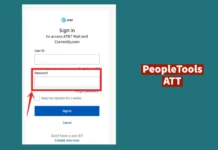Welcome to the exciting world where technology and marketing converge to create a powerful synergy for business success. In today’s rapidly evolving digital landscape, the integration of technology and marketing has become indispensable for organizations striving to stay competitive and thrive.
This dynamic combination empowers businesses to reach wider audiences, enhance customer engagement, streamline operations, and drive growth like never before. The possibilities are endless, from leveraging data analytics and automation to harnessing the reach of social media and online advertising.
In this era of constant innovation, understanding the importance of technology and marketing synergy is key to unlocking new opportunities and achieving sustainable success. In this article, we will explore how businesses can harness the power of this synergy to propel their growth, build strong brands, and connect with customers in a meaningful way.
As you embark on this transformative journey, platforms like GoMiso offer valuable guidelines and resources for achieving business success. Be sure to visit GoMiso to discover how their expertise can help you navigate the convergence of technology and marketing to maximize your organization’s potential.
Key Points Covered in The Article
- Technology and marketing synergy is crucial for business success in today’s digital landscape.
- The integration of technology and marketing allows businesses to reach wider audiences, enhance customer engagement, streamline operations, and drive growth.
- Digital transformation has revolutionized marketing by shifting from traditional advertising to digital channels and integrating digital tools and platforms into strategies.
- Emerging technologies like virtual reality, augmented reality, IoT, and voice assistants influence consumer behavior and the overall customer experience.
- Mobile marketing strategies, including mobile-responsive websites, apps, location-based marketing, and mobile advertising, are essential in reaching and engaging the mobile-centric audience.
- Artificial Intelligence (AI) and Machine Learning (ML) technologies enable marketing automation, personalization, and predictive analytics.
- Data-driven marketing involves collecting and analyzing consumer data to gain insights and inform marketing strategies.
- Personalization and customization in marketing campaigns help in connecting with customers on a deeper level and drive engagement and loyalty.
- Predictive analytics uses data to anticipate customer needs and optimize marketing campaigns.
- A/B testing and experimentation are crucial for optimizing marketing strategies and improving campaign performance.
- Customer lifetime value (CLV) is important in understanding long-term profitability and allocating marketing resources.
- Social media marketing helps reach and engage a global audience through compelling content, influencers, and advanced targeting options.
- Augmented Reality (AR) and Virtual Reality (VR) create immersive experiences for customer engagement.
- Chatbots and AI-powered customer service tools improve responsiveness and support.
- Voice search and voice-activated assistants expand reach and convenience in customer engagement.
- The Internet of Things (IoT) and smart devices provide connected experiences and opportunities for personalized marketing and automation.
ALSO READ: What Is a SaaS Company? Everything You Need to Know
The Evolving Landscape: How Technology is Reshaping Marketing
Digital Transformation and its Impact on Marketing
Digital transformation has revolutionized the marketing landscape, enabling businesses to connect with customers in new and innovative ways.
This subheading explores the fundamental changes brought about by digital transformation, such as the shift from traditional advertising to digital channels, the importance of online presence and branding, and the integration of digital tools and platforms into marketing strategies.
Emerging Technologies and Their Influence on Consumer Behavior
As technology continues to advance, it shapes consumer behavior and expectations.
This section explores the impact of emerging technologies, such as virtual reality, augmented reality, the Internet of Things (IoT), and voice assistants, on consumer behavior.
It examines how these technologies influence purchasing decisions, consumer engagement, and the overall customer experience.
The Rise of Mobile and its Significance in Marketing Strategies
Mobile devices have become integral to consumers’ lives, and marketers must adapt to this mobile-centric landscape.
This subsection delves into the importance of mobile marketing strategies, including mobile-responsive websites, mobile apps, location-based marketing, and mobile advertising.
It explores how businesses can leverage mobile technologies to effectively reach and engage their target audience.
The Role of Artificial Intelligence and Machine Learning in Marketing
Artificial Intelligence (AI) and Machine Learning (ML) have transformed marketing practices by enabling automation, personalization, and predictive analytics.
This segment examines how AI and ML technologies, such as chatbots for customer interactions, recommendation engines for personalized offers, and data analysis for targeted marketing campaigns, are applied in marketing.
It highlights the benefits and challenges of implementing AI and ML in marketing strategies.
Data-Driven Marketing: Unleashing the Power of Analytics
Collecting and Analyzing Consumer Data for Insights
Data is the foundation of data-driven marketing. This subheading explores the importance of collecting and analyzing consumer data to gain valuable insights into customer behavior, preferences, and demographics.
It delves into various data collection methods, such as website analytics, social media monitoring, and customer surveys.
It also discusses the significance of data segmentation and how businesses can use data-driven insights to inform their marketing strategies.
Personalization and Customization in Marketing Campaigns
Personalization has become a key aspect of successful marketing campaigns. This section focuses on the power of personalization and customization in connecting with customers on a deeper level.
It explores strategies for tailoring marketing messages, content, and offers to individual customer preferences.
It also highlights the benefits of personalized marketing in driving customer engagement, loyalty, and conversion rates.
Predictive Analytics: Anticipating Customer Needs and Behavior
Predictive analytics utilizes historical and real-time data to forecast future customer behavior and preferences.
This subsection explains how businesses can leverage predictive analytics to anticipate customer needs, identify potential opportunities, and optimize marketing campaigns.
It discusses the importance of advanced analytics techniques, such as machine learning algorithms, in predicting customer behavior and driving targeted marketing efforts.
Utilizing A/B Testing and Experimentation for Optimization
A/B testing and experimentation are essential for optimizing marketing strategies and improving campaign performance.
This segment explores the benefits of conducting A/B tests to compare different marketing variables, such as ad copy, visuals, call-to-action buttons, and landing pages.
It explains how businesses can use experimentation to measure the effectiveness of marketing tactics and make data-driven decisions to optimize their campaigns.
Understanding and Leveraging Customer Lifetime Value
Customer lifetime value (CLV) is a crucial metric in understanding the long-term profitability of customers. This subheading highlights the importance of CLV in data-driven marketing strategies.
It explains how businesses can calculate CLV, analyze customer segments based on value, and effectively allocate marketing resources.
It also emphasizes the significance of building strong customer relationships and fostering loyalty to maximize CLV.
Innovative Technologies for Enhanced Customer Engagement
Social Media Marketing: Reaching and Engaging a Global Audience
Social media platforms have transformed the way businesses connect with their audience. This section explores the power of social media marketing in reaching and engaging a global audience.
It delves into strategies for creating compelling social media content, leveraging influencers, and utilizing advanced targeting options.
It also highlights the importance of social listening and engagement to build strong relationships with customers.
Augmented Reality and Virtual Reality: Creating Immersive Experiences
Augmented reality (AR) and virtual reality (VR) technologies have revolutionized customer engagement by offering immersive experiences.
This subtopic explores how businesses can leverage AR and VR to create interactive and engaging experiences for their customers.
It delves into applications such as virtual product try-ons, immersive brand storytelling, and virtual tours. It highlights the benefits of AR and VR in enhancing customer satisfaction and differentiating brands.
Chatbots and AI-Powered Customer Service: Improving Responsiveness
Chatbots and AI-powered customer service tools have transformed how businesses interact with customers. This segment focuses on the role of chatbots in improving responsiveness and customer service.
It explores how businesses can use chatbots to provide instant support, answer FAQs, and handle basic customer inquiries.
It also discusses the benefits of AI-powered customer service, such as improved efficiency, 24/7 availability, and personalized interactions.
Voice Search and Voice-Activated Assistants: Expanding Reach and Convenience
With the rise of voice-activated assistants like Siri, Alexa, and Google Assistant, voice search has become essential to customer engagement.
This subheading delves into the impact of voice search on businesses and explores strategies for optimizing content for voice queries.
It discusses the convenience and accessibility of voice-activated assistants and highlights the importance of voice search optimization in expanding the reach and improving customer experiences.
In today’s digital age, businesses need to recognize the growing significance of voice search optimization for customer engagement and for enhancing their content offerings.
Whether it’s finding the latest Netflix series with IMDb ratings or discovering top-rated movies, optimizing content for voice queries can provide users with seamless and convenient access to relevant information, helping businesses connect with their audience in more impactful ways.
Internet of Things (IoT) and Smart Devices: Creating Connected Experiences
The Internet of Things (IoT) and smart devices have transformed how businesses interact with customers and provide connected experiences.
This section explores how IoT-enabled devices, such as smart home devices and wearables, can enhance customer engagement.
It discusses the potential for personalized marketing, data collection, and automation through IoT. It also highlights the importance of data security and privacy considerations in utilizing IoT technologies.
Recommendations
Equipment Rental Industry: A Look at BigRentz
Conclusion
In conclusion, integrating technology and marketing is vital for business success in the digital era. This powerful synergy enables organizations to expand their reach, engage customers more effectively, streamline operations, and drive growth. By harnessing the potential of data analytics, automation, and social media, businesses can tap into new opportunities and stay ahead of the competition.
Understanding the importance of this convergence is essential for thriving in today’s rapidly evolving landscape. Embracing emerging technologies like virtual reality, augmented reality, IoT, and voice assistants allows businesses to reshape consumer behavior and deliver immersive experiences.
Mobile marketing strategies play a significant role in engaging mobile-centric audiences. Artificial intelligence and machine learning revolutionize marketing by enabling personalization, automation, and predictive analytics. Data-driven marketing provides valuable insights into customer behavior and preferences.
Businesses can optimize marketing campaigns and drive customer engagement by leveraging these insights. In summary, integrating technology and marketing is a game-changer, propelling businesses towards sustained growth and success.




